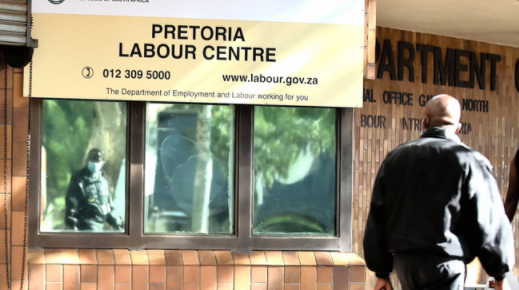Many employees are yet to benefit from UIF payouts as employers drag their feet in relief applications or simply don’t apply. Thobile Mathonsi African News Agency (ANA)
CAPE TOWN - Employer organisations say the maladministration in the governments UIF TERS Covid-19 relief payment scheme could have been greatly reduced if the Department of Employment and Labour had accepted offers of administrative assistance from the private sector.
This was in reaction to the release by Auditor-General (AG) Kimi Makwetu on Wednesday of a first report that identified weak administration, errors and corruption in the governments R500 billion Covid-19 relief efforts, of which on aspect was the UIF TERS top-up scheme for employees whose work was affected by Covid-19.
“We have been disappointed that the institution (Department of Employment and Labour) that administers the UIF TERS scheme appeared reluctant to accept free private sector assistance offered in an effort to enhance efficiencies,” Business For South Africa spokesperson Alan Fine said on behalf of the organisation.
He said Business For South Africa had “repeatedly noted deficiencies in the UIF TERS systems from the perspective of payments to employees and employers.
National Employer Association of South Africa (Neasa) chief executive Gerhard Papenfus said there remained a great deal of UIF TERS claims that have either not been processed or paid.
He said the scheme contribution was “a drop in the bucket” compared with the financial impact and ruin that the lockdown has had on many employees.
He said there had been a number of corruption cases reported for the UIF TERS scheme, as well as instances where payments had been made for employees who were deceased, under aged or who were in prison,
Papenfus said the administration could have been much improved.
“The system has been maligned with unexplained errors, delays, downtime, corruption and complete system failures. It was clearly not tested before it was implemented and remains a source of much frustration for employers who have to explain delays to their employees,” said Papenfus.
The National Union of Metalworkers of South Africa (Numsa), which strongly condemned a proposal by Neasa to relax minimum wage requirements, said the UIF TERS relief scheme had proven to be woefully inadequate, and in some cases worsened the situation by failing to pay workers on time, thus deepening their suffering during the lockdown.
IFP spokesperson on labour and employment Xolani Ngwezi said millions of unemployed South Africans had been turned away at the UIF, even though they were well within their rights to process claims and seek relief for temporary unemployment.
“The myriad of issues plaguing the UIF will come to the fore, and an immediate turnaround strategy must be implemented to fix what is broken the UIF,” Ngwezi said.
Democratic Alliance MP Dr Michael Cardo said the AG’s report was likely to have only scratched the surface of malfeasance at the UIF.
“All along, Minister Nxesi has been very quick to point the finger of blame at employers for the many problems bedevilling the TERS scheme. However, it is inconceivable that the fraud and financial mismanagement uncovered by the AG could have occurred without the active participation of UIF officials who control processing and payment of the Ters benefits,” Dr Cardo said.
Article Source: https://bit.ly/2Fdn1xM





